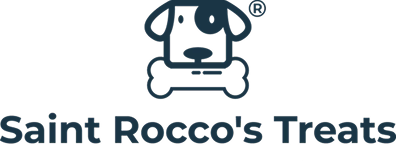We have mentioned before and it’s worth repeating: quite a few foods that people ingest are toxic to dogs. Please be very careful to never feed your dog any of the following, never store them or leave them out where your dog may be able to get them and don’t let them fall on the floor or leave them in the garbage where your dog may be tempted to snoop.
Dangerous foods
The smaller the dog, the less the dog needs to eat in order to be severely harmed. For most of these foods, vomiting and diarrhea are the first signs of trouble, but within hours or days, serious damage can occur, so get your pet to the vet if you think he has eaten something he shouldn’t have.
Chocolate: Most people know about this one, but there are many others you may not know, so keep reading. Chocolate contains theobromines, which can cause heart problems, vomiting and diarrhea, seizures, and death. The darker the chocolate the more theobromines, but even white chocolate is dangerous.
Nuts, especially macadamia nuts: Just six macadamia nuts are enough to sicken your dog. More can lead to tremors, fever, vomiting, and weakness in the legs.
Onions and garlic: Onion or garlic in any form can give your dog anemia over time, and even eating them once in large quantities can lead to food poisoning and breathing problems. Onion and garlic are hidden in many processed human foods, which is another reason you shouldn’t feed your dog people food.
Artificial sweeteners, soda, etc.: Artificial sweeteners are also hidden in many of our foods. Xylitol is particularly dangerous for your dog – it can lead to liver damage and seizures. Liver damage from xylitol can actually happen within days.
Alcohol: Alcohol can make your dog drunk, which is bad enough for the poor thing. But it can further cause vomiting, breathing problems, coma, and death, especially in smaller dogs.
Caffeinated products: Coffee, tea, energy drinks, soda, chocolate, cocoa powder, cold medicines – wherever caffeine is hiding, if your dog ingests it, it could be fatal. Get your dog to a vet.
Grapes and raisins: Grapes and raisins can cause kidney failure in dogs. Early signs of toxicity are vomiting and sluggishness. If grapes or raisins fall on the floor pick them up quickly before your dog eats them.
Avocado and fruits with pits or stones: Avocado contains persin, which can cause vomiting. The stone of an avocado, along with the stones or pits of fruit like peaches, can get stuck in your dog’s digestive tract.
Cooked bones: While some raw bones are good for dogs to chew on (very large, hard bones, never bird bones), cooked bones are soft and brittle and can cause severe damage to your dog’s digestive tract.
Various other people foods and medicines: Keep all medicine out of your dog’s reach to avoid poisoning. Sugary foods, salty foods, and raw foods that are not properly prepared can also cause your dog harm.
Keeping your dog safe
Just as the parents of babies and toddlers need to “baby-proof” their homes, you need to “dog-proof” your home. Anywhere you may take your dog also needs to be dog-proofed.
For instance, many people like to keep a bowl of nuts, candy, or chocolates on the table as a treat for guests (or themselves). This is something pet owners should not do. If you take your dog anywhere, look around first to make sure nothing is within your pet’s reach.
If it smells good, even the very best-trained dogs may be very tempted to put their paws up on the table and pull it down to eat it. More than one Valentine’s Day box of candy has been eaten by a dog, causing severe injury or death.
You’ll also want to keep your trash in a doggy-proof container or location, so he doesn’t nose in there for old cooked bones or corn cobs.
One way to keep your dog from snacking on people food is to keep some of his favorite snacks in a baggy in your pocket. Either keep our Sprinkles handy or cut one of our other treats into small pieces. Treat him before he goes into a new place or when he hesitates snapping up the corn cob that fell from the table. Reward him for NOT eating people food when the opportunity arises and it should become a habit that will keep him safer. But don’t count on him always being good. Avoid temptation as much as possible to keep your dog safe from ingesting toxic foods.


